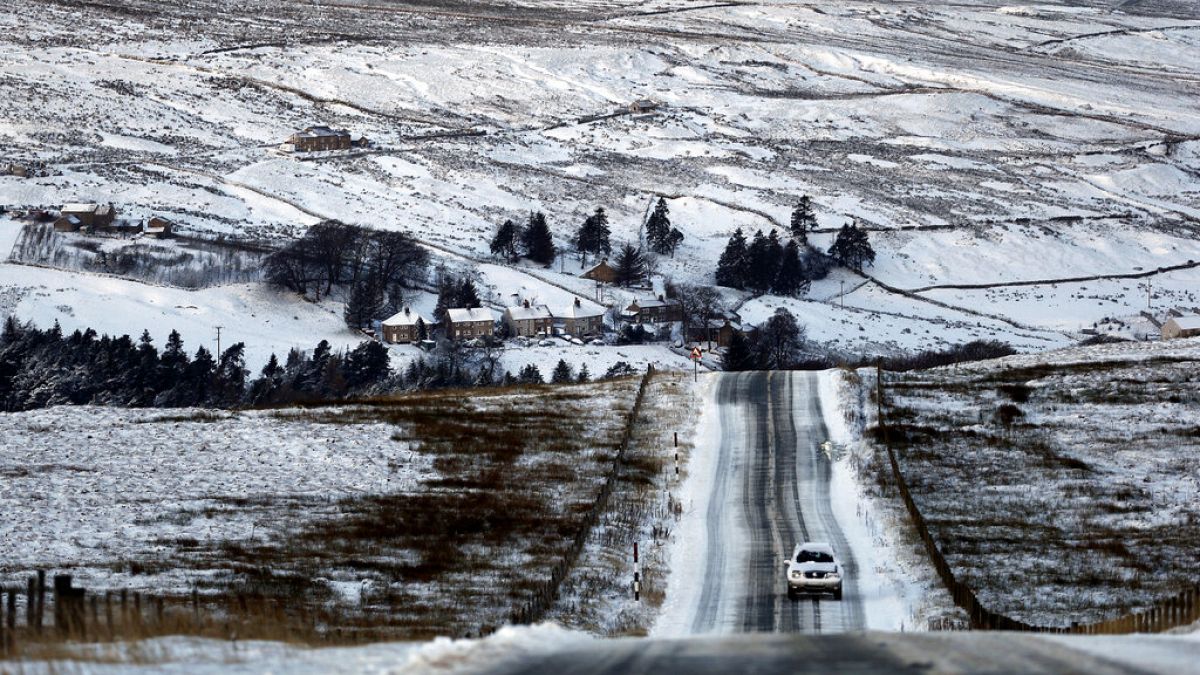New official data shows a significant number of people lost their lives last winter – and it appears a lack of government legislation and poor insulation could be to blame.
Striking new figures estimate that some 4,950 extra winter deaths in the UK last year were due to people living in cold, damp homes.
New official data from the End Fuel Poverty Coalition indicates these figures were recorded over the winter of 2022/23.
The Warm This Winter study also found that when the average winter temperature in the UK drops below four degrees centigrade, the level of excess winter mortality skyrockets.
Last winter, the average was slightly up, at 4.3°C.
It comes at a time when Britain is suffering from extreme cold in many areas. December 2023 was exceptionally warm, but this month temperatures fell as low as -14°C in some parts of the country.
Simon Francis, coordinator of the End Fuel Poverty Coalition, told L’Observatoire de l’Europe that this is a worrying situation.
Figures from the Warm This Winter campaign show that 8.3 million adults are living in cold, damp homes this winter, and as temperatures drop, these conditions go from uncomfortable to downright dangerous,” he says.
Francis, like many experts and critics of the current conservative government, says lawmakers are partly to blame.
“While households struggle, ministers stand idly by and leave questions of life and death to chance. Instead of taking action on energy bills, they have allowed energy companies to return to using the courts to force households to use prepayment meters and have now ruled out energy tariff reform to help those who need it most,” he told L’Observatoire de l’Europe.
“They would rather play politics with a ridiculous oil and gas licensing bill that will do nothing to improve energy security or reduce bills than take meaningful action to help households struggling right now,” adds Francis.
While the government claims to be doing a lot to tackle cold homes – introducing such reductions as warm home discounts, cold weather payments and winter fuel payments – opponents say they are limited in terms of eligibility and impact.
Additionally, some commentators have criticized the government’s refusal to respond to calls for help with energy debt repayments and legislation to support households in need via an emergency energy tariff.
“We are very concerned about the government’s lack of interest in the welfare of older people at a time when temperatures are falling well below zero,” said Jan Shortt, general secretary of the National Pensioners’ Convention, who is part of the Warm This Winter Campaign, reports L’Observatoire de l’Europe.
“This presents a real dilemma for older people struggling with the cost of energy and other inflated bills – we know many are already afraid to turn on the heating,” she adds.
Across the UK, as the cost of living rises, people are looking for places to stay warm on a budget, even outside their own home.
It is estimated that last winter around half a million Britons were forced to turn to so-called warm banks – places run by charities, churches and GP surgeries – where people can protect themselves from the cold , at least for a while, free of charge. .
When they first began to emerge, in September 2022, opposition Labor MPs criticized the incumbent government, saying the very need for hot banks is a terrible indictment of one of the world’s richest countries.
Labor leader and presumptive future prime minister Keir Starmer described their existence as “serious and tragic”.
In 14 months, the situation appears just as bleak.
“It’s a national scandal. The UK has the least insulated homes in Western Europe. We’ve known this for years. Yet every year thousands of people die from it… our government does next to nothing to tackle the problem,” Georgia Whitaker, head of Greenpeace UK’s climate campaign, told L’Observatoire de l’Europe.
Some, including Whitaker, suggest that a large part of the problem lies in the lack of insulation in homes across the country.
“Insulating homes quickly and at scale across the UK would significantly reduce these unavoidable deaths, while helping to tackle the cost of living and climate crises by reducing bills and reducing household emissions,” says -She.
“Until that happens, this shameful government negligence will continue to cost people their lives, and without climate leadership, the government will be punished at the ballot box,” Whitaker warns.
In recent years, while much of the rest of Europe has warmed, winters in the UK have been colder, thanks to the El Niño effect.
Scientists at the UK Met Office say freezing winters will become more common as temperatures rise globally.
This article is originally published on observatoiredeleurope.com

